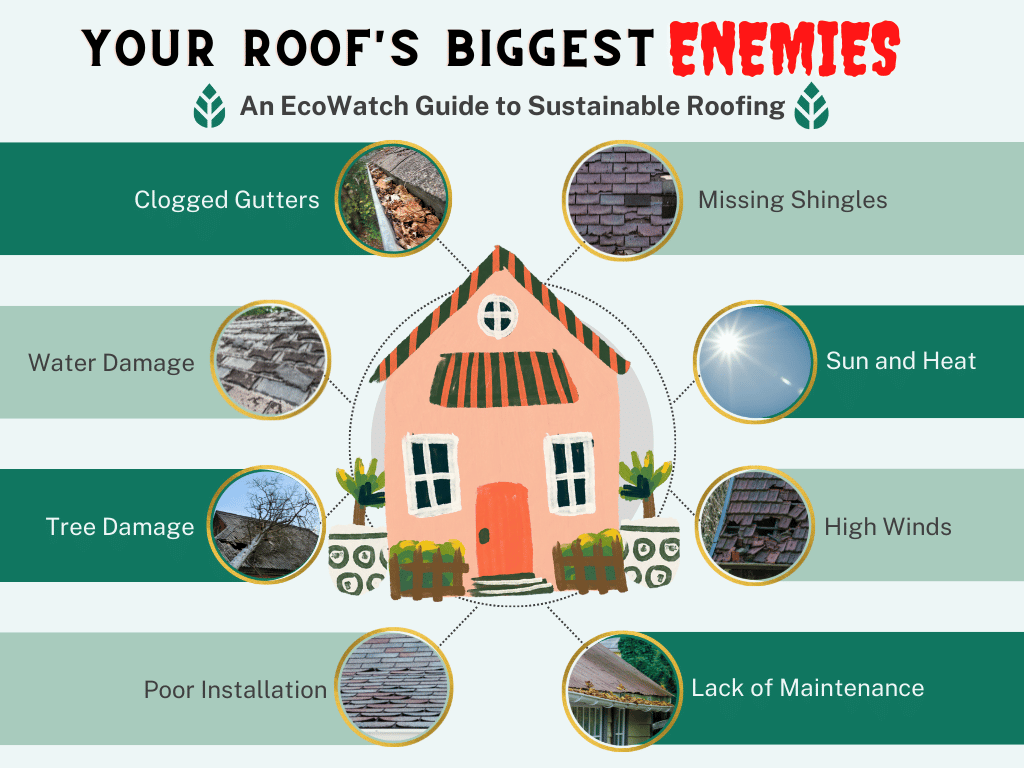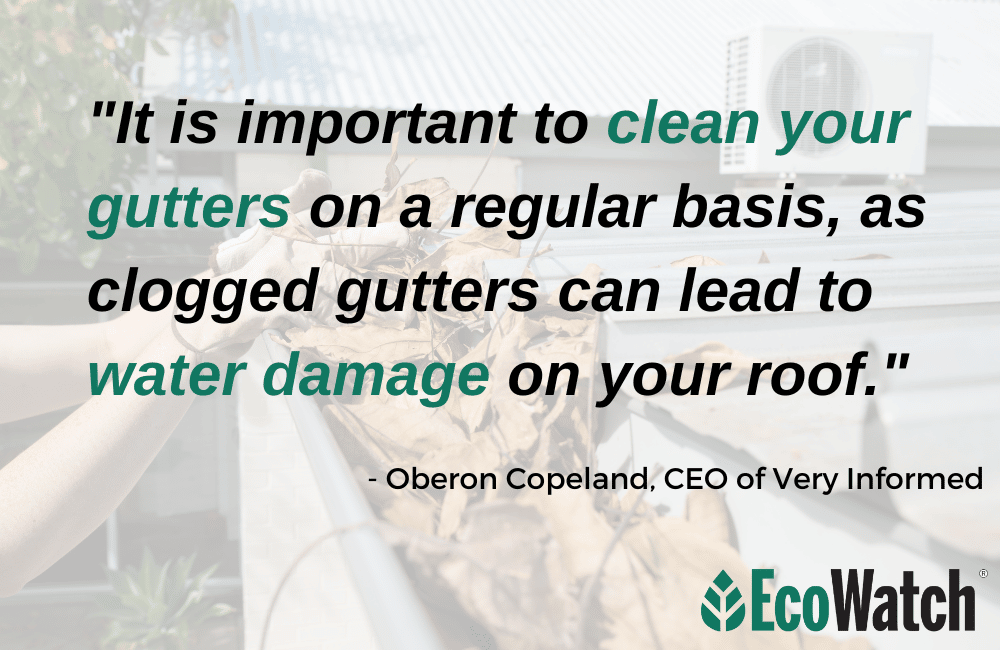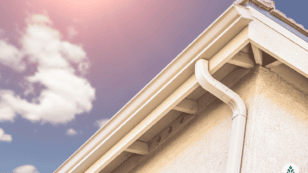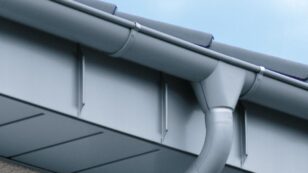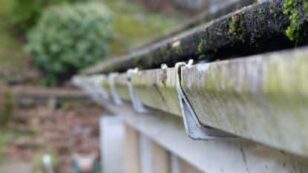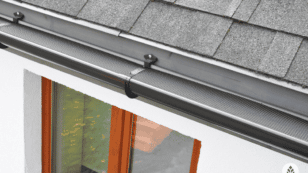
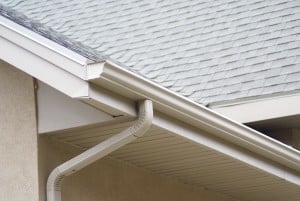
Are Gutters Necessary for Homes? (2024 Guide)
In this guide on the importance of gutters, you’ll learn:
- How do gutters work and what do they do?
- Are gutters necessary for every home?
- What will happen if you do not install gutters?
- Are there specific states that won’t require gutters?
If you are wondering if gutters are really worth it, then this guide will give you the right information to see if your home needs to have gutters installed. Enter you zip code below to receive a personalized quote on gutter options near you.
Each product and or company featured here has been independently selected by the writer. You can learn more about our review methodology here. If you make a purchase using the links included, we may earn commission.
Rain gutter systems are common throughout the U.S., but many people don’t realize just how valuable they are to the safety of their homes. They certainly add curb appeal to your home, but their true function runs much deeper than making your home appear more complete.
In this guide, we’ll discuss whether you really need gutters, how they work, what they do for your home and what can happen if you fail to install gutters.
We’ll also discuss some situations where you might not necessarily need a gutter system.
Are Gutters Necessary?
Although the legal answer to this question is no, gutters are still necessary for the vast majority of homes looking to avoid long-term water damage.
We’ll explain in greater detail in the sections below, but here are the quick bullets as to why gutters are necessary:
- Foundation protection: By channeling water away from the base of your home, gutters are key to protecting your home’s foundation from leaks and water damage.
- Basement protection: If you have a basement, you’ll require gutters. Without gutters, your basement is far more susceptible to leaks and flooding from stormwater that will pool around your house.
- Roof protection: Gutters prevent water from dripping onto the overhang of your roof. Since the eaves, soffits and fascias of your roof are typically made of wood, gutters help prevent rotting and mold formation that would occur from water damage.

LeafFilter

Save 12% plus $250 off on gutter guards for your home. Seniors and Military save an additional 10%.
Average cost
Pros
- Made from sustainable materials
- Materials are recyclable
- Positive customer reviews
- Has green initiatives
- Competitive pricing
Cons
- Not DIY-friendly

MasterShield

Get a free estimate today!
Average cost
Pros
- Made from sustainable and/or recycled materials
- Materials are recyclable
- Lifetime and/or comprehensive warranty
- Lots of color and design options
- Has green initiatives
Cons
- Expensive products or installation fees
- Reports of clogging
- Made of non-recyclable materials
- Not DIY-friendly

HomeCraft
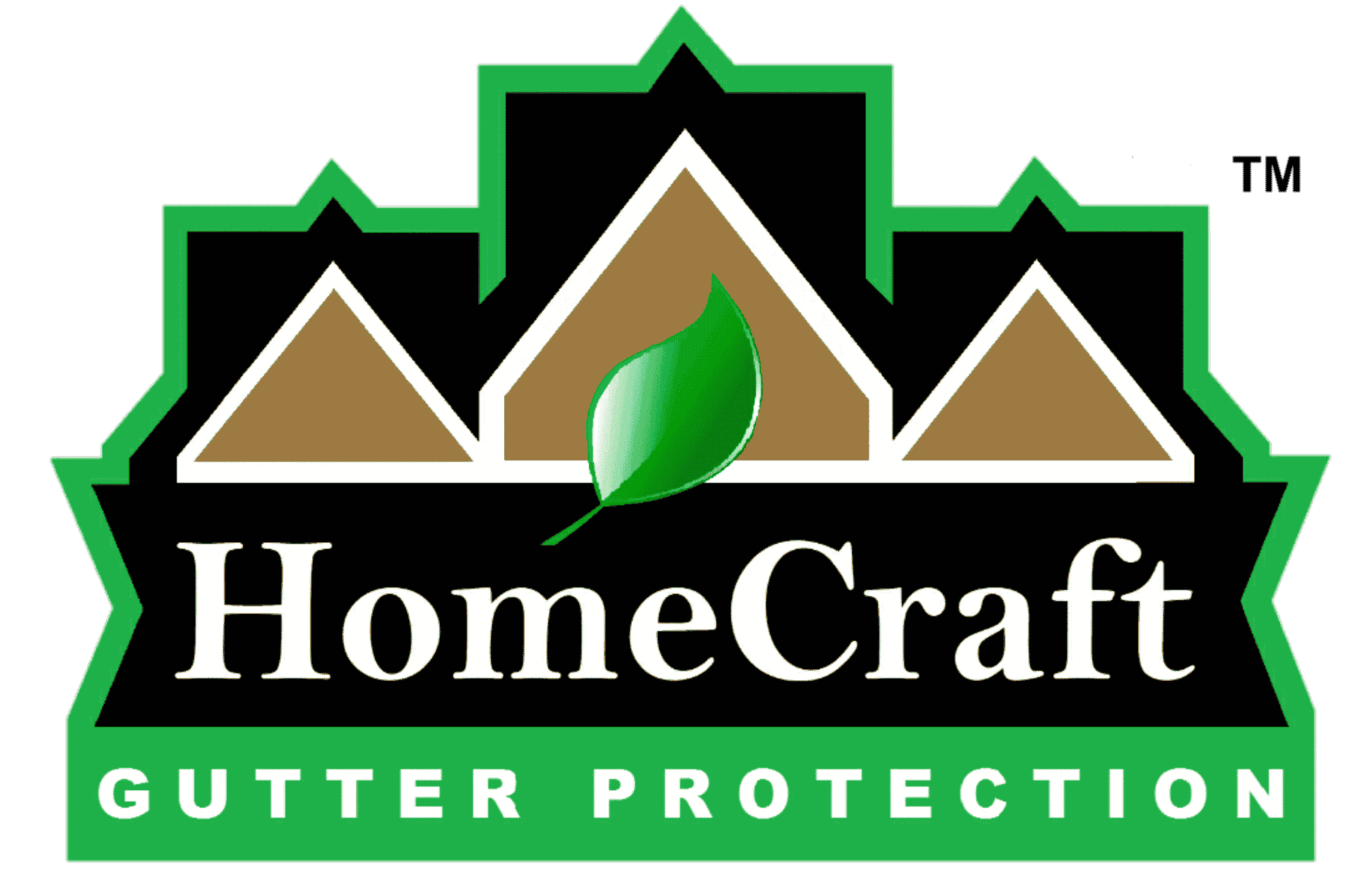
New customers save 30%.
Average cost
Pros
- Offers pitched/diamond designs for better flow
Cons
- No stated commitment to bettering the environment
- Some negative online reviews
- Limited availability
How Do Gutters Work?
Gutter systems consist of two parts — the actual gutters, which are responsible for catching rainwater off the edge of your roof — and the downspouts, which bring the collected water down to the ground for proper disposal.
The gutters themselves attach to your fascia, the vertical board running under the shingles at the edge of your roof. Many systems also include downspout extenders to move the runoff to a desired and safe location on your property.
When runoff from heavy rain or melting snow makes its way down to the roof edge, the water falls into the gutter rather than down to the ground. The gutters are sloped so that the runoff travels to the corners of the property, where downspouts divert it to the ground for safer drainage away from your home.
In some cases, homeowners opt to collect rainwater from downspouts. This is an eco-friendly home improvement project that can be especially important in drought-prone areas.
What Do Gutters Do?
While the function of your gutter system is quite simple, relocating water away from your home is crucial for many reasons.
Gutters Prevent Soffit and Fascia Damage
First, gutters prevent water from dripping onto your fascia and soffits.
Since these portions of your roof are typically made of wood, gutters help prevent rotting and mold formation, both of which can be expensive to repair and can detract from your home’s curb appeal.
See the moss and mold on this roof’s overhang? This is the type of damage you can expect without functioning gutters.
Gutters Prevent Foundation Damage
Second, gutters divert water away from your home’s foundation, which is the primary reason gutters are so useful.
If water is left to fall to the ground next to your foundation, the soil can quickly become saturated. If you live in an area with clayey soil, the soil will expand in response to moisture, which adds pressure on your concrete foundation.
Over time, the expansion and contraction can lead to:
- Cracking in your foundation
- An increased risk of water intrusion
- Structural damage in your home
- Increased indoor humidity
If you live in an area with sandy soil, the runoff can cause erosion, which can leave portions of your foundation unsupported by the ground around it. This, too, can lead to instability and foundation cracks, as well as structural issues over time.
Gutters Prevent Foundation Leaks
While concrete is a strong and durable building material that’s ideal for foundations, it’s also porous. If water collects in the soil around your foundation and gets trapped against the concrete, it can soak in through the pores and evaporate into your home.
Increased moisture in your home can lead to pest infestation and mold and mildew issues. It also makes the air in your living area feel hotter in the summer and colder in the winter, which means you’ll likely drive up your energy bills as well as you call on heating and AC systems to compensate.
If you have foundation cracks from natural house settling or soil shifting, the water will also have an easier time getting in. If runoff comes in through cracks, you could be looking at actual leaks leading to water damage, destroyed building material and hazardous mold growth.
In worst-case scenarios, leaks can lead to puddles in your home or full-on basement flooding. Water leaking in can also be a fire hazard if it comes in contact with your electrical system.
What Can Happen if You Don’t Install Gutters?

In the best-case scenario, failing to install gutters can lead to manageable issues, like moisture problems in your crawlspace or basement. However, the risk of far more severe problems is high.
You could experience foundation cracks, which can be structural in nature or just cosmetic. In either case, you can expect to spend money to repair them and prevent leaking, and the most extreme foundation repairs can cost thousands of dollars.
Not having gutters on your home also means you’re more prone to pest infestations, which again, can cost you unnecessarily for pest control services.
If you have a deck or other landscaping features, runoff from a roof without gutters can also cause soil erosion and deterioration.
If exposed to concentrated water falling from your roof, your deck sealant could wear away and begin peeling, pavers could become discolored and garden beds can get washed out.
Are Gutters Ever Optional?
Gutters aren’t always strictly necessary, and there are circumstances where you can get away without having gutters installed on your home. These include:
- If the ground around your home is naturally protected
- If the ground around your home is already drained properly
- If there is a low risk of soil saturation on your property
For example, if your home naturally has a large roof overhang — 10 inches — you could probably get away without needing gutters, but only if you’re in an area that doesn’t see excessive rainfall.
If you have naturally good drainage on your property, like land sloping away from your foundation or manufactured drainage like a French drain, you might not need gutters.
Finally, if you live in an arid state — like Arizona, Nevada or parts of California — then gutters might not be a requirement.
Wrapping Up: Why Gutters Are So Important
Gutters are common not just because of their looks, but also because of how they protect your home from costly damage to your foundation. They also help protect your landscaping features, and they prevent the rotting and molding of your exterior trim, like your fascia boards and soffits.
Installing new gutters and maintaining them can be expensive, depending on the type of gutter. However, the cost pales in comparison to what you’d pay for damages caused by not having them in most cases.
For instance, failing to install and maintain your gutters can cause water damage to both your roof and your home’s foundation.
There are some instances where gutters aren’t absolutely necessary — like if you live in arid states or have other drainage installed on your property — but they’re usually a good idea for most homeowners.
The best way to find out if gutters are really necessary for your home is to consult with a specialist. If you’re ready to connect with a vetted gutter provider near you, follow the link below.
FAQ: Are Gutters Necessary?
Below, we’ll include our answers to some of the most frequent questions we get from homeowners about whether their homes need gutters.
Some modern homes have no gutters because they are fitted with other drainage systems. Others might have natural landscaping that helps direct water away from the foundation or long overhangs (called eaves) that protrude out far enough to keep the foundation safe without gutters.
Gutters should be installed at the bottom of any roof slope. For houses with a gable roof, this often means just two sides of your home will need gutters. For homes with a hip roof or a similar style, all four sides should be fitted with gutters.
In most cases, gutter guards — also called gutter covers — are beneficial. These filters will catch debris that would otherwise lead to clogged gutters and let it fall off of your roof instead. They reduce the need for gutter cleaning and the risk of ice dams.
At the same time, the perforations on micro mesh gutter guards are large enough to allow adequate water to flow down into the gutter for disposal while avoiding clogging. Gutter guards are especially important in areas with heavy tree coverage.

 233k
233k  41k
41k  Subscribe
Subscribe 
